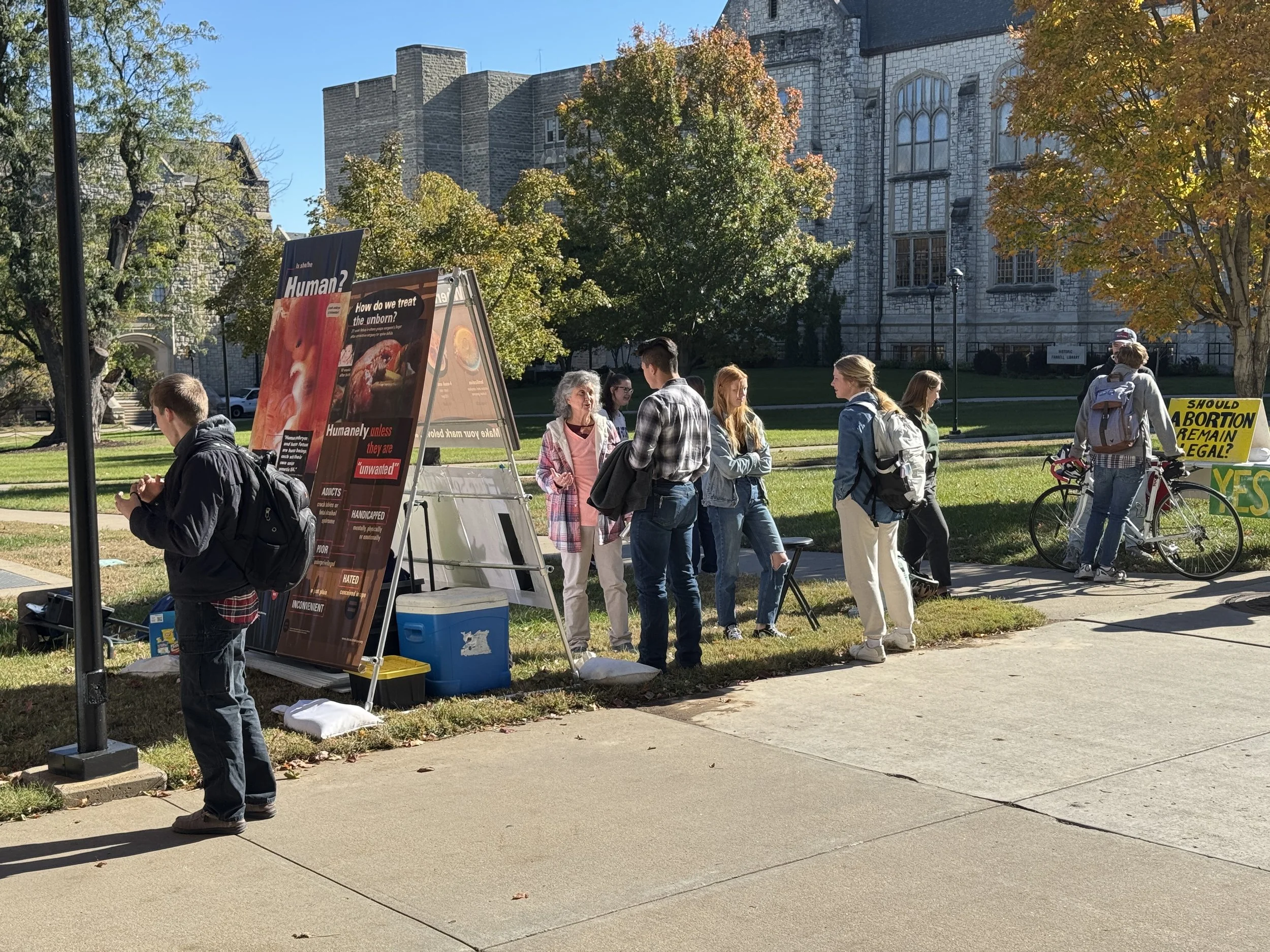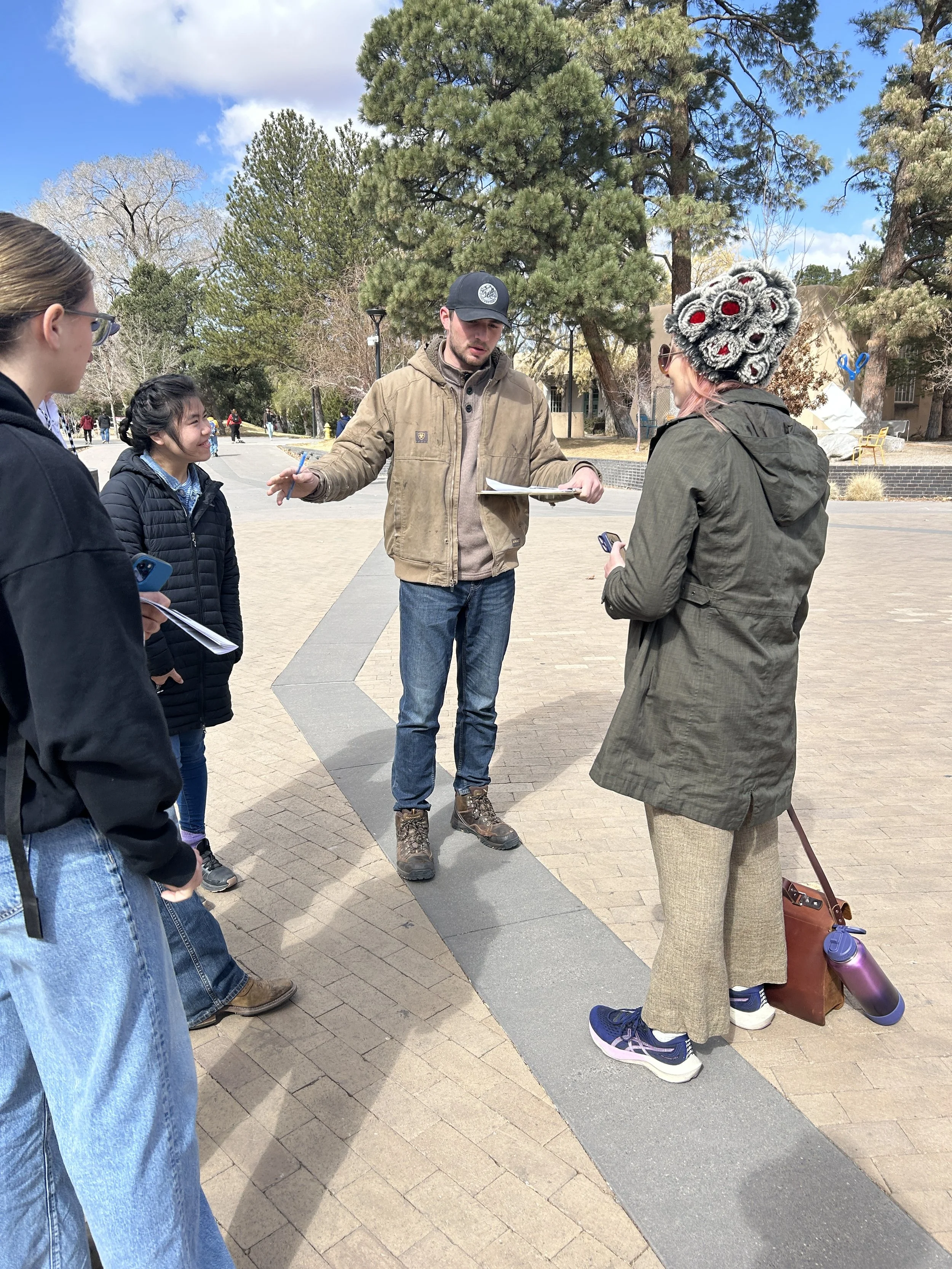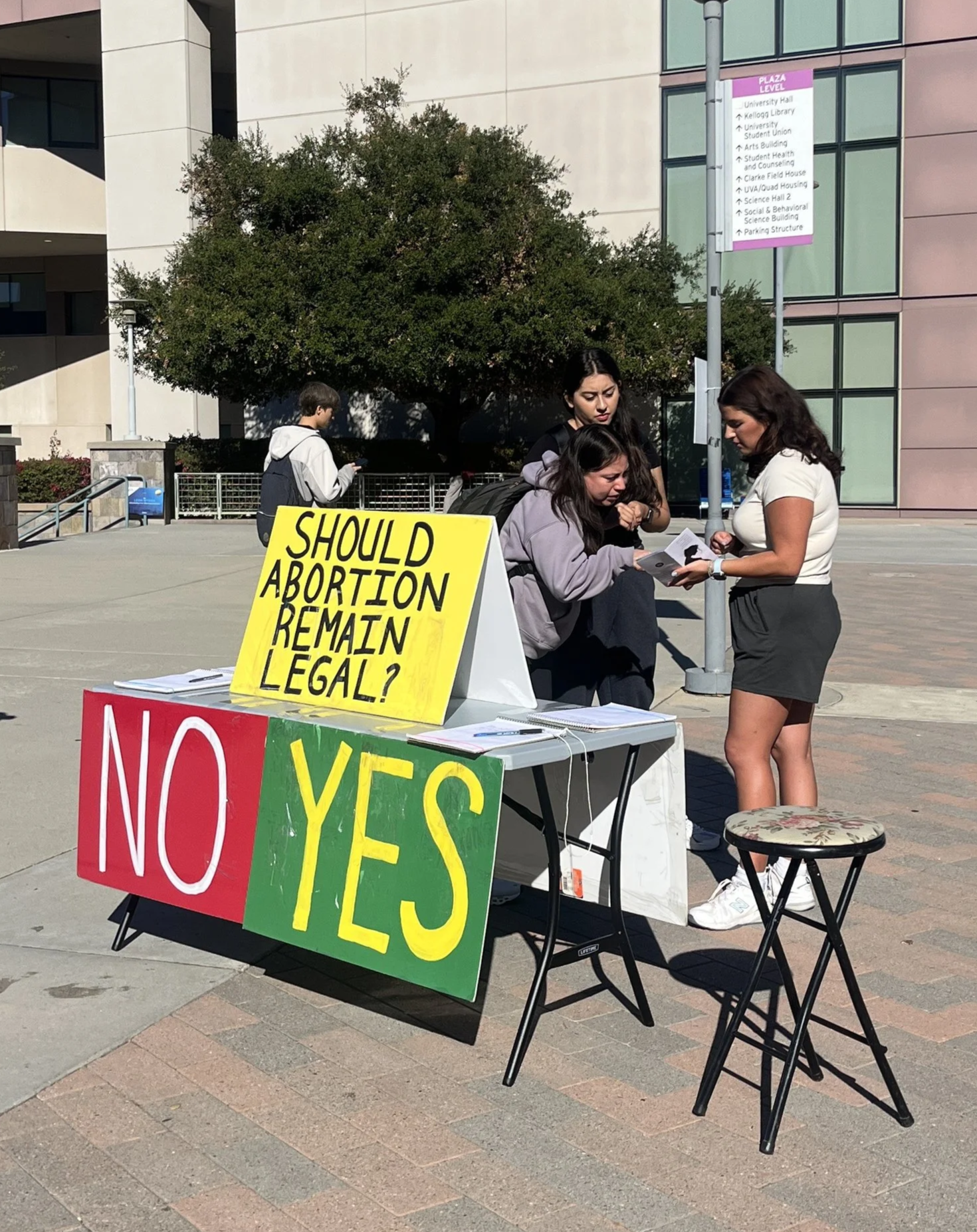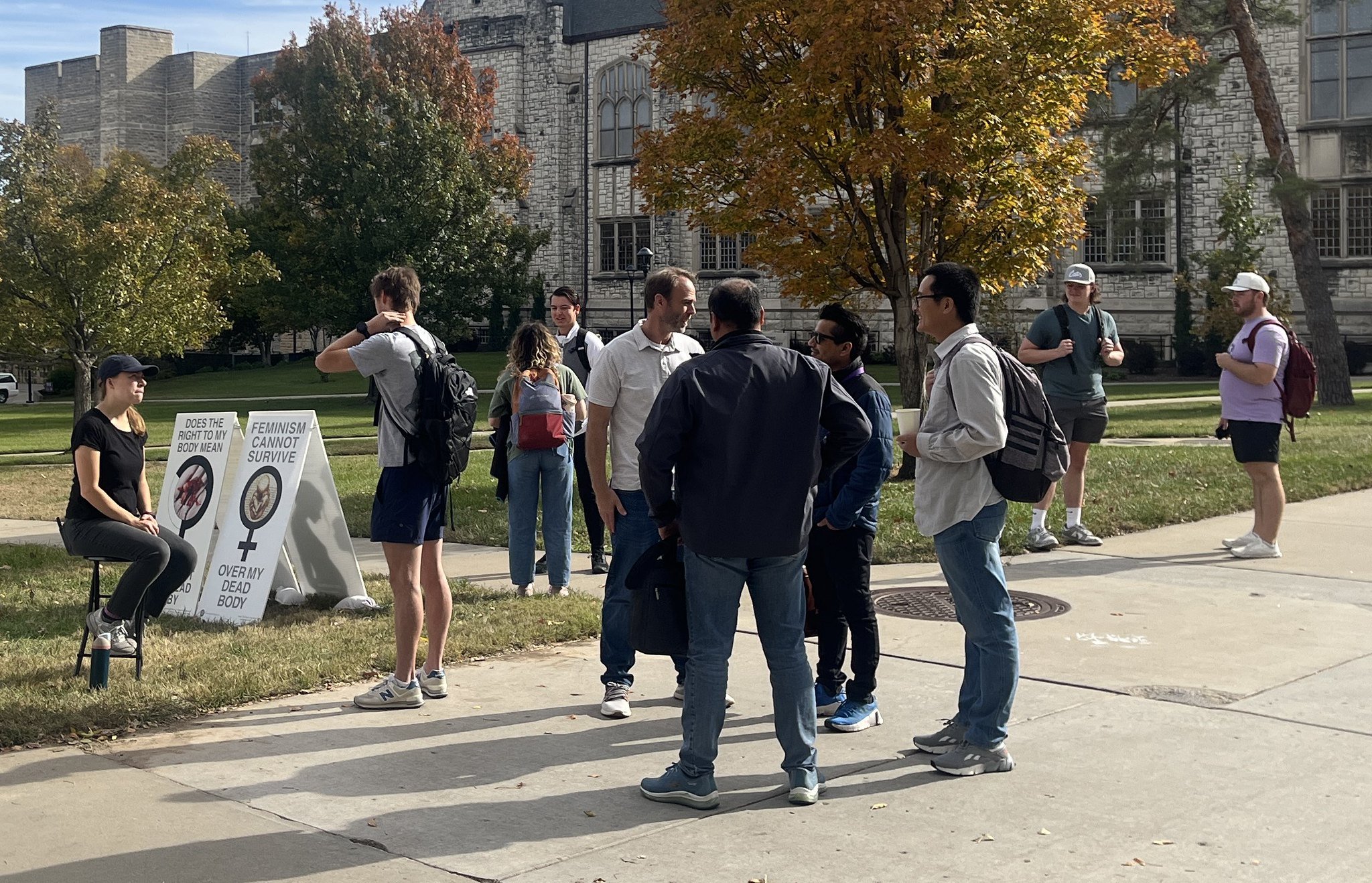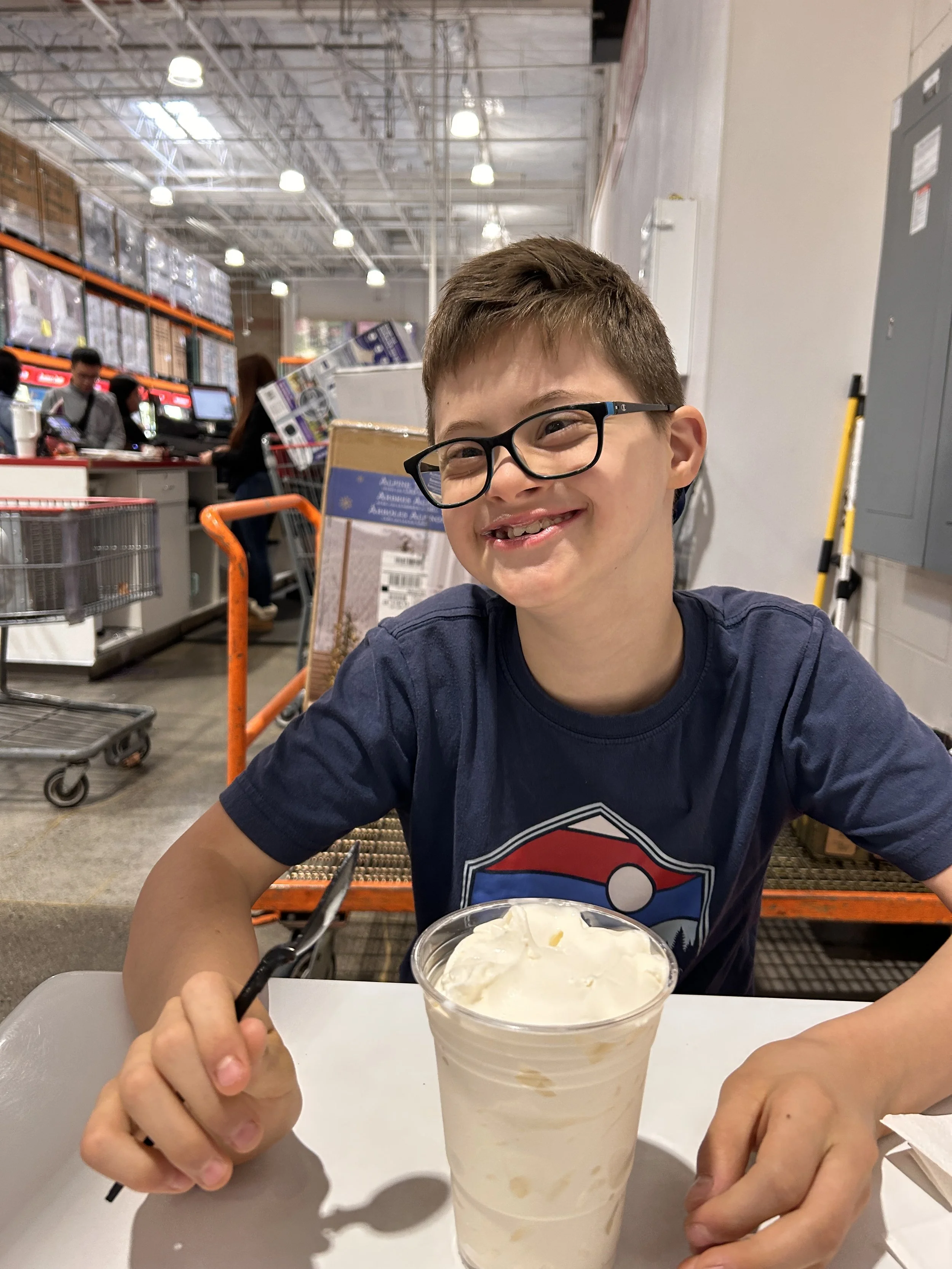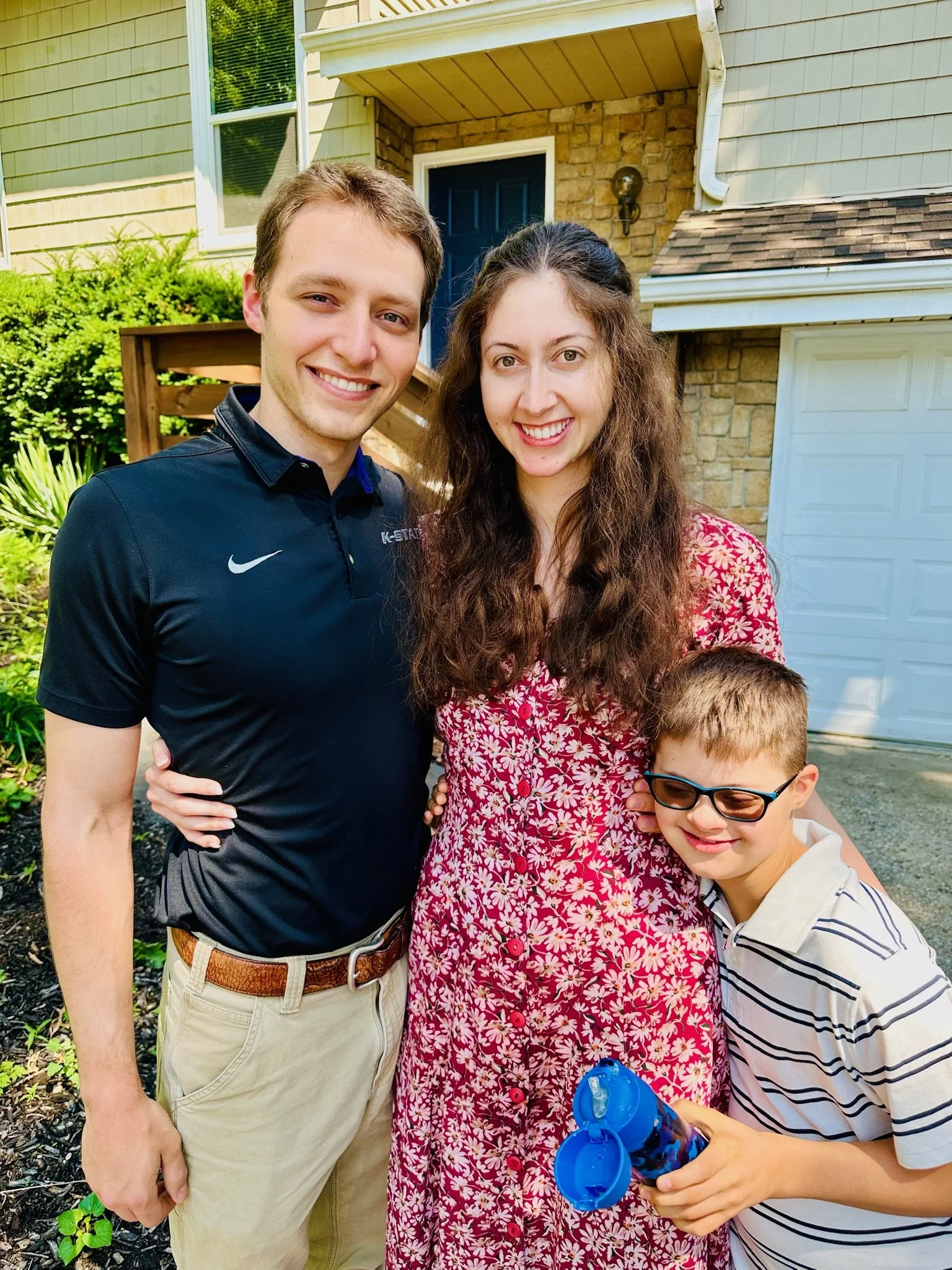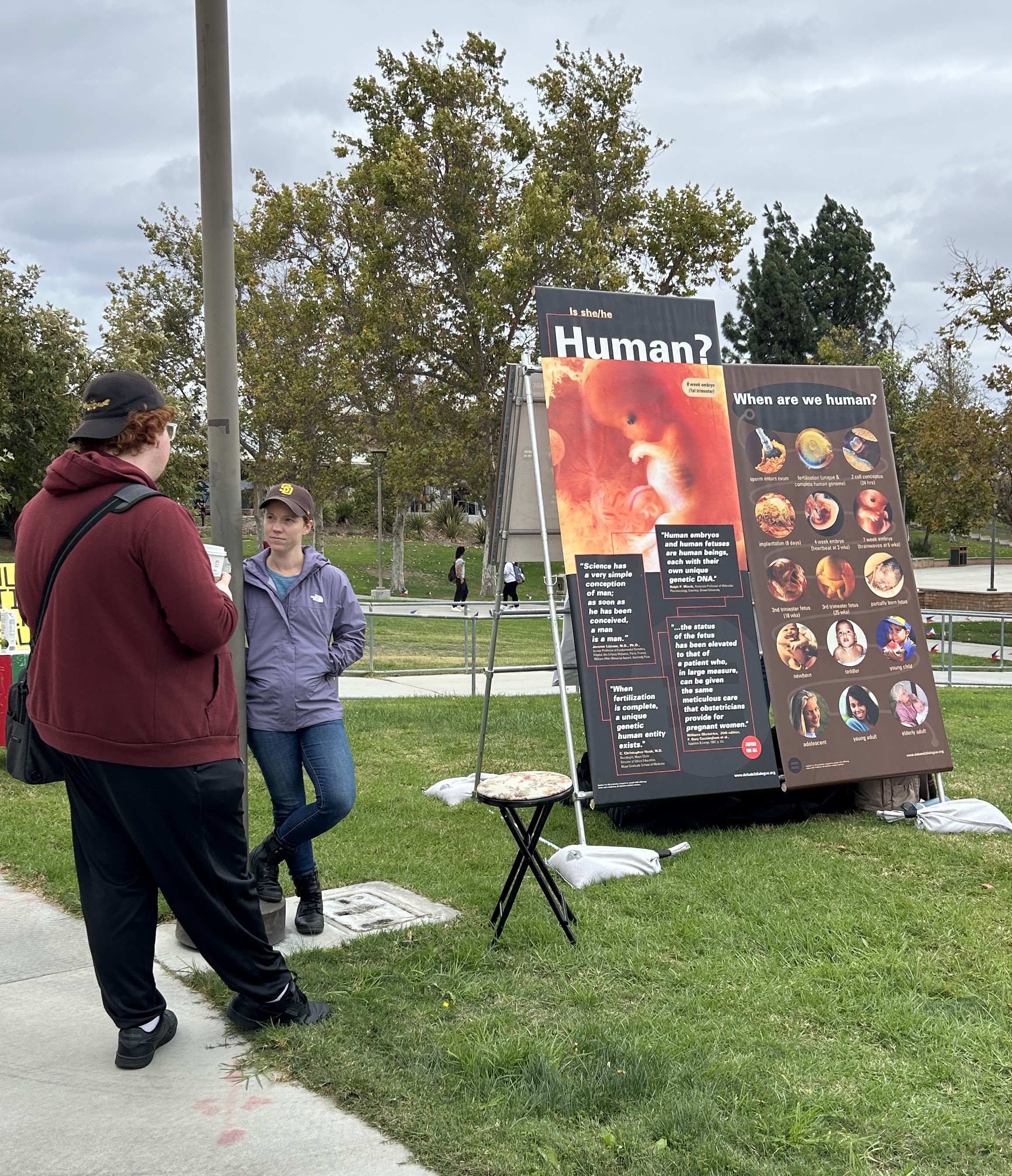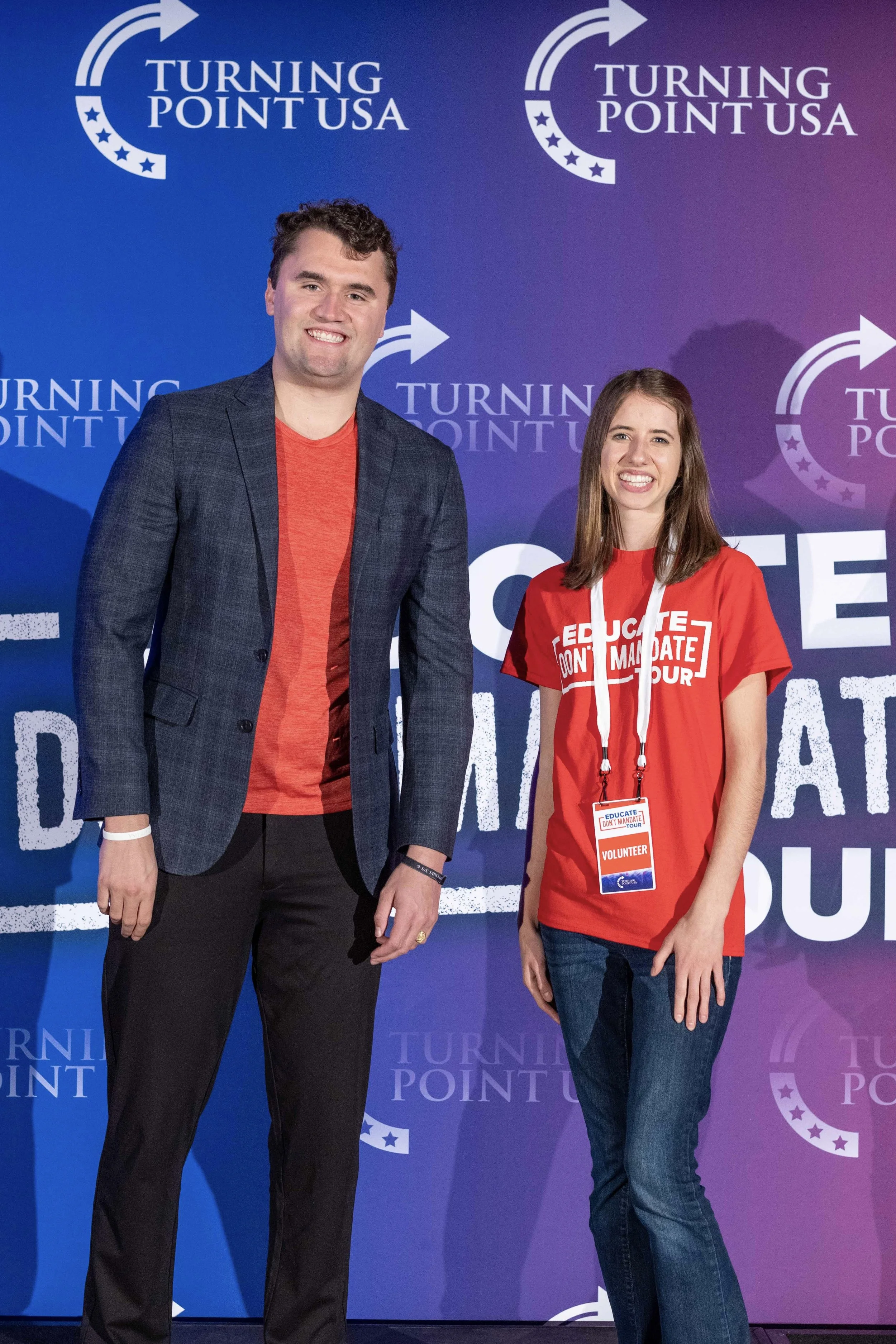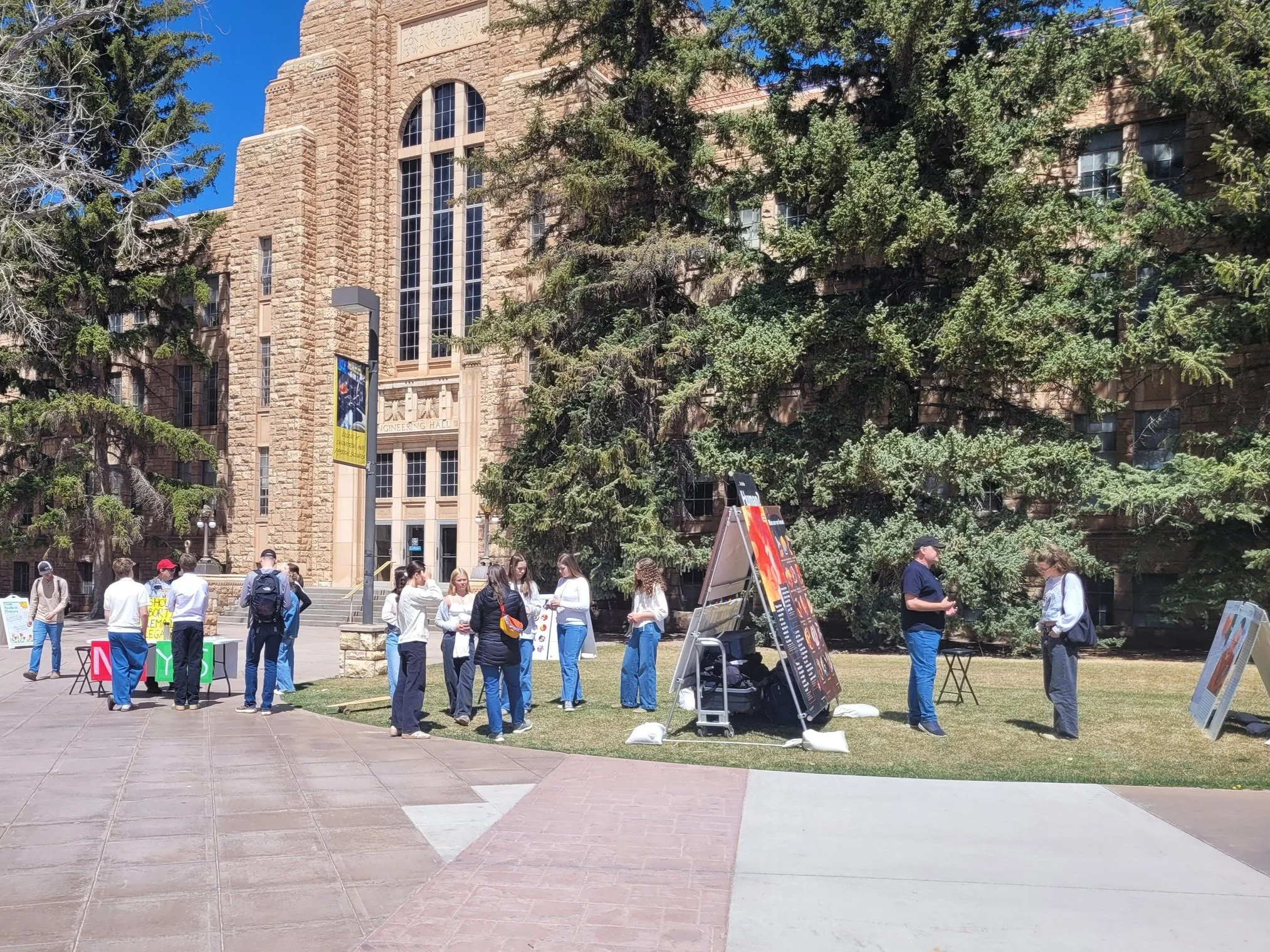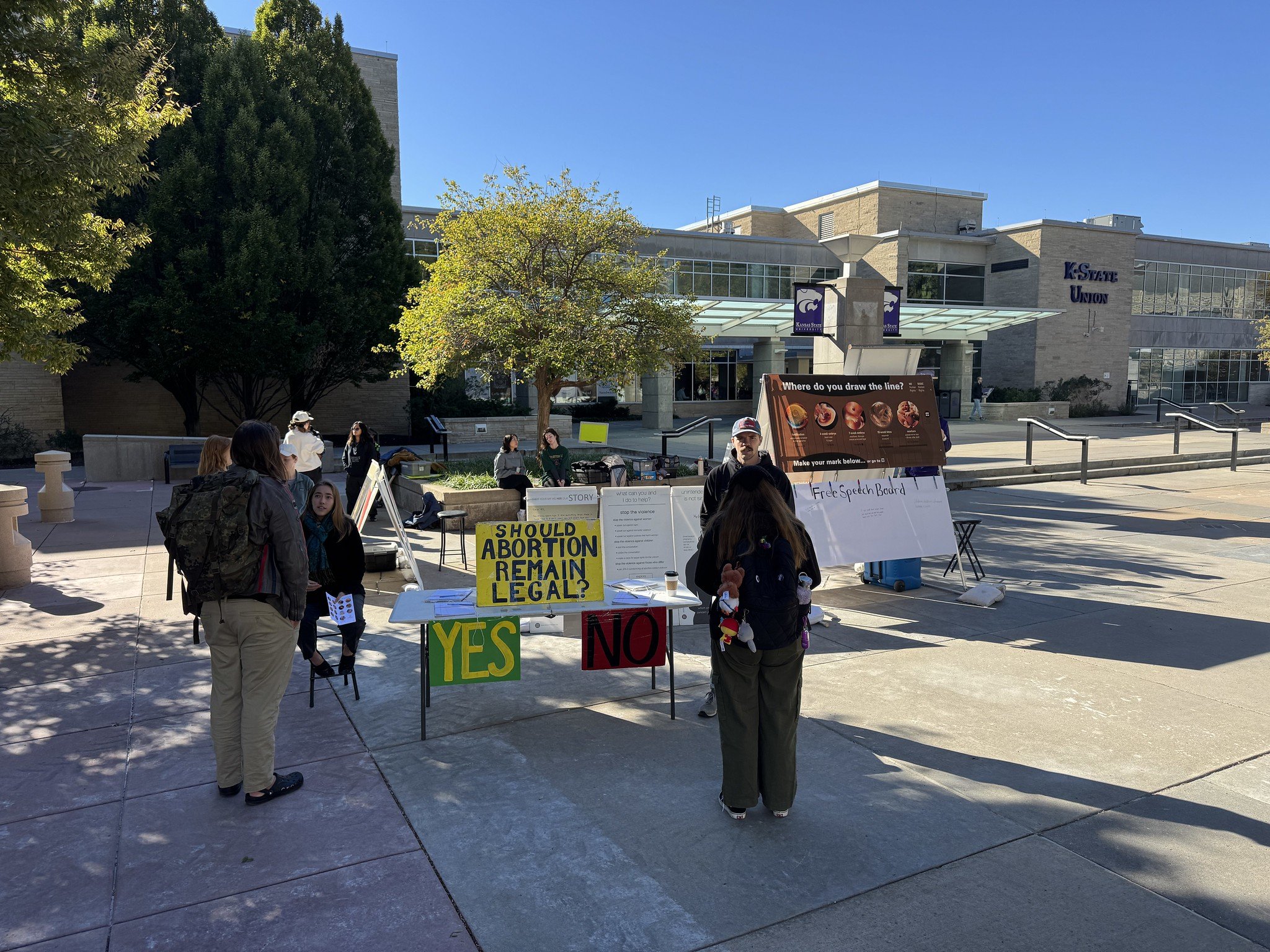Impact Report, Dec. 2025
During this Advent and Christmas season, as we think about the Son of God taking on flesh in order to save the world, we pause and thank God. We pray you are able to pause with us to worship our great God.
In this Impact Report, I share the story of two eager pro-life advocates, Maya and Matthew. Both joined me in a special conversation that took place at the University of New Mexico (UNM) when we partnered with the Summit Ministries Gap-Year Program to conduct outreach there in March. Maya, a Summit student, made a special impact in this conversation where Matthew didn’t, and that was in part because of the special gifting she has from God and in part because of Summit’s priority on providing JFA’s training for their students. There’s still time to give a special year-end gift to help us train more Christians like Maya in the coming year. Please consider giving a generous gift today at jfaweb.org/donate.
Steve Wagner, Executive Director
I think the conversation lasted for about three hours. It all began when a student stopped to talk at our intern Alora and my daughter Elsie who were stationed near our poll table at the University of New Mexico (UNM) in March. The young man with a skateboard wanted to know why they were hurting women. So I spoke up and said, “I’m the Director of the organization, so I’m happy to talk to you.” Well, based on what followed, I’m not sure he was happy to talk to me. He proceeded to tell me what I believed and all about views I held...that I don’t actually hold. When I attempted to answer a question he asked, I barely had three words out before he would cut me off. It was ugly.
At University of New Mexico (UNM) in early March, a crowd formed as Steve (center right) engaged a heated skateboarder in dialogue.
I was in my element, though. A crowd began to form, made up of JFA volunteers and UNM passersby. Soon a shorter female student with bright pink hair stepped up and said she wanted a turn. Evidently I was either a sounding board or a punching bag for each of these students to share their thoughts. I carefully listened, and I worked hard to live out the tools we had been training our volunteers to exemplify: listening to understand, asking questions with an open heart, and finding common ground when possible.
Soon a student named Kayla confidently joined the conversation, and the large crowd continued to listen for awhile before our volunteers did what I had hoped they would do – turn to their neighbors and ask what they thought. Kayla and I and a few others ended up in a smaller circle continuing to dialogue.
That’s when a UNM student I’ll call Matthew joined our conversation. Matthew was very intelligent, very conservative, and very confident. If I remember correctly, he also said he was a Christian. As I listened to the conversation between Kayla and Matthew, I became concerned. When Kayla mentioned women who were raped, Matthew quickly pointed out that only 1.5% of abortions happen due to rape. I don’t remember each of the next exchanges, but they all followed a familiar pattern: Kayla would share something about the plight of women, and Matthew would give an intellectual response to show how her point didn’t justify abortion. Kayla was getting more and more agitated, and her anger and annoyance were palpable. Matthew was unfazed.
A student named Maya had joined our circle and motioned that she wanted to tell me something. “I don’t think the way he’s doing this is very good. I think he should use a different approach.” Maya said this humbly, with a spirit of concern for Kayla and not an intent to criticize. Maya was serving as a volunteer on our mission outreach team, along with about 40 other students and faculty from the incredible Summit Ministries Gap Year program. (Cheryl Kaye Davis, who served on JFA’s training team from 2012-2016, helps direct this program and helped arrange our partnership.)
Maya (center left) and Steve (center right) talk to Kayla (hidden) and other students at UNM.
I knew Maya had had some difficulty creating conversation that day. Although she is incredibly sharp, Maya has a disability that means it takes her a little longer than most to get her words out, and she is also shy. What I said next was a gamble, given the high intensity of Kayla and other pro-choice people in the circle. They really seemed to be coming to the end of their patience. I trusted Maya, though, and even more importantly, I trusted that God would help her. I whispered, “I think you should say what you are thinking to Kayla. Would you like to?” Maya looked at me a little surprised, but I could tell she was also eager.
When there was a break in the back-and-forth debate responses from Matthew, I said, “Kayla, this is my friend Maya. She wanted to say something.” And Maya began. It took her awhile to get her first question out. Kayla listened intently, and I could tell she was rooting along with me for this young woman that many people would say was not going to be the best advocate because she speaks slowly and needs the listener to attend more carefully than usual. Maya asked a question that was right on point, but it was filled with understanding and calm kindness. She was being relational while also being intellectual. She was seeking to understand by asking for clarification. I only wish I could remember the exact words so I could replay them here for you. They were beautiful.
Maya (center left) and another Summit student named Luke (center right) conduct a survey at our UNM event. See below for more pictures from this and other recent events.
Kayla and Maya proceeded to interact for the next many minutes, and Maya accomplished what I had been unable to, and what Matthew seems not to have attempted: a personal connection with Kayla. Yet Maya did not accomplish this by setting aside the truth. She was beautifully weaving concern for the truth with concern for Kayla as a person, someone worth loving and challenging. I could tell Kayla was receiving Maya’s gift.
I felt privileged to watch our training bloom and flower in Maya’s life. As I reflected later, it struck me: Every Christian needs this training. There was only a small difference between Matthew and Maya. Both had zeal and concern for God and the truth and justice for small humans, but Maya had the additional benefit of Summit’s excellent faculty and curriculum along with JFA materials, interactive exercises, and mentoring. (To learn more about Summit, please see summit.org.)
Please consider giving a generous year-end gift to help our team as we work to bring this training to every Christian (jfaweb.org/donate), especially through partnerships with like-minded organizations like Summit. We are eager to help every Christian learn to use the simple skills that can transform their well-meaning debates into dialogue that changes hearts and saves lives, both the physical lives of the unborn and the spiritual lives of people like Kayla.
– Steve Wagner, for the JFA Team
Note: Please also read Maya’s beautiful reflection on this conversation below.
“No Excuses” - A JFA Volunteer Reflection by Maya
The UNM experience was unique for me because it wasn’t supposed to happen. I wasn’t there for the first part of the conversation with Kayla, and I probably wouldn’t have been there for the second half of it if it hadn’t been the Lord’s timing. Ironically, that particular day started off feeling like a failure. I remember being on campus wanting to start a conversation once the people were flooding in. Every time a person approached, I chickened out because I felt inadequate. I kept thinking oh, I should let my well-spoken friends speak to them because they would get it out more confidently.
Before JFA and Summit training, my thought process was that it was only the really strong conversationalists that can explain to people why the pro-life position matters. The JFA team loosened that idea for me but it was still ingrained into me. So I just listened to all the conversations because I still thought it was important to hear the other side. The crowd had died down to a couple of people around 11:30, so I ate lunch around that time.
Then a friend of mine (her name was Franziska) and I decided to go around the campus asking people questions about abortion. I let her do most of the speaking. My friend encouraged me to speak up, but, in the back of my mind, I had already decided that I wasn’t someone who needed to be heard. I hated that I hesitated, but the doubt was so heavy that I couldn’t push past it. Franziska and I did this for a while, and we weren’t making progress with many people, so we decided to go back to the display earlier than expected. On the way back I remember being really disappointed.
By the time we had walked back, all I could see was Mr. Wagner engulfed by a large crowd. Curious, I came up closer, and he was engaged in a conversation with Kayla. Then a man who was not with our group came into the conversation. The man was a Christian and a Republican. He and Kayla were getting into a heated discussion about rape and abortion. This man was incredibly intelligent, and I could see that this topic meant a lot to him. However I was paying more attention to Kayla. I was listening intently to hear what Kayla had to say and see where she was coming from. I could see she was breaking with every point she was trying to communicate to the guy because she was trying to make the guy see why it mattered to her. At that moment, I realized that she was just as scared as I was. All I felt was empathy for her.
At that moment I just drifted off to the side to think. Mr. Wagner was there, and I just said what I was thinking. “I don’t think his approach is very good. I think there should be a different approach.” Mr. Wagner’s next words shocked me. He asked me if I wanted to say what I was thinking to Kayla. Internally I was screaming, “No, no, no! Say no. I’m not the one you need.” Then out of the corner of my eye I saw Kayla, and I don't know why, but I automatically said, “Yes.” I fumbled through the conversation badly. But somehow I was able to get through to her. I think she could sense I was scared to death, and we were both rooting for each other. I listened to her, and she was listening to me. I thought it was a very fruitful conversation.
As I think back on the experience, it reminds me of the story of Moses. Moses gave all sorts of excuses and begged God to choose someone else. In the end, the excuses didn’t matter because we serve a mighty God who can handle our inadequacies. Philippians 4:13 says, “I can do all things through Christ which strengtheneth me.” It is only in God that I was able to say Yes in a situation where I would’ve said No.
– Maya, Summit Ministries Gap-Year Participant and JFA Volunteer
See More Recent Event Photos AND POSTS…
More Conversation Stories From RECENT EVENTS
• This Conversation Has Really Opened My Eyes


